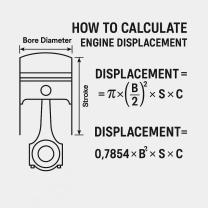How long does diesel last for in the tank?
The shelf life of diesel fuel in a tank can vary depending on several key factors. While diesel fuel is generally more stable and has a longer shelf life compared to gasoline, it can still degrade over time. Here are the key factors that influence how long diesel fuel can last in a tank:
Fuel Quality: The quality of the diesel fuel at the time of purchase is a significant factor. High-quality, clean diesel fuel with fewer impurities and contaminants tends to have a longer shelf life.
Additives: Some diesel fuels come with additives designed to improve fuel stability and prevent degradation. These additives can extend the shelf life of diesel fuel. Additionally, diesel fuel conditioners or stabilizers can be added to the fuel to enhance its longevity.
Storage Conditions: Proper storage conditions are essential for preserving the quality of diesel fuel. Factors such as temperature, humidity, and exposure to light can affect fuel stability. Diesel fuel should be stored in a cool, dry place, away from direct sunlight, and in a sealed container or tank to minimize exposure to air and moisture.
Tank Contamination: The presence of water, sediment, or microbial growth in the fuel tank can accelerate the degradation of diesel fuel. Water can promote the growth of bacteria and fungi, leading to the formation of sludge and acidic byproducts that can degrade the fuel. Regular tank maintenance and inspections can help prevent contamination.
Temperature: Diesel fuel is more stable at cooler temperatures. Higher temperatures can lead to increased oxidation and degradation of the fuel. Storing diesel fuel in a tank with temperature control or insulation can help preserve its quality.
Fuel Age: Diesel fuel does not have a set expiration date, but its quality will deteriorate over time. The rate of degradation increases with age, and older fuel may experience issues such as increased sediment, reduced lubricity, and reduced cetane levels (which can affect engine performance).
Microbial Growth: Microbial contamination, often referred to as "diesel bug," can occur in diesel fuel tanks. Bacteria and fungi can thrive in the presence of water and organic matter, leading to the formation of biomass and corrosive byproducts. Regular tank cleaning and the use of biocides can prevent microbial growth.
Fuel Filtration: Adequate filtration of diesel fuel before it enters the engine is essential. Filters should be regularly inspected and replaced to prevent contaminants from reaching the engine and causing damage.
In general, under optimal conditions (clean, dry storage, with proper additives), diesel fuel can remain usable for several months to a year or more. However, fuel quality will gradually degrade over time, and for critical applications or long-term storage, it's advisable to rotate or replace stored diesel fuel periodically.
For diesel engines that are used regularly, this may not be a significant concern as fuel is continuously consumed and replaced. However, for backup generators, long-term storage, or equipment that sits idle for extended periods, fuel quality maintenance and monitoring are essential to ensure reliable performance.
Diesel Fuel Longevity: How Long Does It Last in the Tank?
Diesel fuel has a shelf life of 6-12 months in ideal conditions. However, a number of factors can affect how long diesel fuel lasts, including:
- Temperature: Diesel fuel degrades more quickly in high temperatures.
- Water contamination: Water can cause diesel fuel to degrade and form bacteria.
- Oxygen exposure: Oxygen exposure can also cause diesel fuel to degrade.
- Biodiesel content: Diesel fuel with a higher biodiesel content has a shorter shelf life.
Factors Affecting the Shelf Life of Diesel Fuel
The following factors can affect the shelf life of diesel fuel:
- Temperature: Diesel fuel is more stable at cooler temperatures. When diesel fuel is exposed to high temperatures, it can degrade more quickly. This is because high temperatures can cause the diesel fuel to break down and form sludge and other contaminants.
- Water contamination: Water can contaminate diesel fuel through condensation or through improper storage. Water can cause diesel fuel to degrade and form bacteria. Bacteria can grow in the water and produce slime, which can clog fuel filters and injectors.
- Oxygen exposure: Oxygen exposure can cause diesel fuel to degrade and form gum. Gum can clog fuel filters and injectors.
- Biodiesel content: Diesel fuel with a higher biodiesel content has a shorter shelf life. Biodiesel is more susceptible to oxidation and degradation than conventional diesel fuel.
Maximizing the Usefulness of Diesel in Your Vehicle
There are a few things you can do to maximize the usefulness of diesel in your vehicle:
- Store diesel fuel in a cool, dark place. This will help to prevent the diesel fuel from degrading.
- Use a fuel additive. A fuel additive can help to prevent the formation of sludge and other contaminants in the fuel system.
- Have your fuel tank cleaned and serviced regularly. This will help to remove any contaminants that have built up in the fuel tank.
- Change your fuel filter regularly. This will help to prevent contaminants from entering the fuel system.
By following these tips, you can help to extend the shelf life of diesel fuel and keep your diesel vehicle running smoothly.












